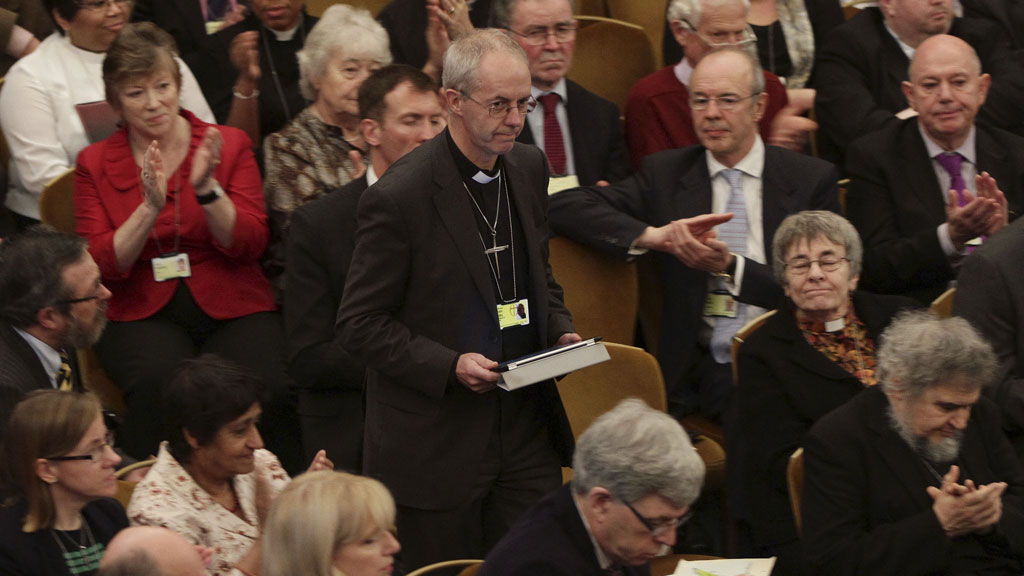Rebellion over women bishops could spark re-vote says Canon
A rebellion among the governing body of the Church of England could help trigger a re-vote into ordaining women bishops it is claimed.

After one of the houses of the General Synod refused to vote through women bishops there were tears and there was anger and frustration. Public petitions were put up online and the Diocese of Bristol passed a motion of no confidence in the General Synod.
Aprons
In Hereford women have even worn aprons to church services to protest against the decision. But these have all been largely symbolic, without any power to reverse the Synod’s vote.
Now one of the members of the House of Laity, Canon Stephen Barney, strongly in favour of women bishops, has petitioned for a vote of no confidence in the chair of the house, Dr Philip Giddings.
New Archbishop
Dr Giddings spoke against the proposals in favour of women at the last meeting of the General Synod, directly after the next Archbishop of Canterbury, Justin Welby, who is in favour.
The petition gained sufficient support for an extraordinary meeting of the house to be called – despite criticism from other members who say the attack is personal and the meeting is an unnecessary cost.
No confidence
If more than half the House of Laity vote in favour of a vote of no confidence at the meeting on 18 January Mr Barney says Dr Giddings could be forced to stand down – and such a major change in the constitution could trigger a revote, especially considering the House of Bishops are to dicuss a new legislative package in the New Year.
Mr Barney told Channel 4 News, why he felt the vote was so important.
He said: “If the motion is carried it will make a statement to the church and to the country that the majority of the House of Laity do think that women should be bishops.
“It is my belief that there are circumstances when these measures might be recognised and it will send a very strong signal to the House of Bishops when they meet to discuss the way forward in the New Year.
“I refute absolutely the suggestion that this motion is a personal attack on the chair of the House of Laity or some sort of vendetta by the losers.
“The debate, which has significant support from members, is solely to ask the question whether the conduct of the chair of the house is appropriate given that he spoke directly after the Archbishop of Canterbury designate and against the motion, which had over 70 per cent support both in General Synod and in the Dioceses.
“I think we do have to ask this question, for me it is about the role of a chairman and accountability.” – Canon Stephen Barney
“As a public company director I was always answerable to my shareholders for my actions and expected to be held accountable. I welcomed that.
“If I had lost their confidence I would have lost my livelihood, not an unpaid but prestigious and influential position. I think we do have to ask this question, for me it is about the role of a chairman and accountability, in this case in respect of article eight business.
“Leaders of political parties face votes of no confidence. Whilst these are not direct parallels they do have some relevance. This is not an unusual thing given the circumstances and is a governance issue.
“There is a problem here – Dr Giddings and others need to know, whether or not he still commands the support of the House of Laity.”
However a spokesman for the Church of England said: “If the vote is carried and if Dr Giddings stands down the matter remains in the hands of the House of Bishops who will be meeting with interested parties in February.”